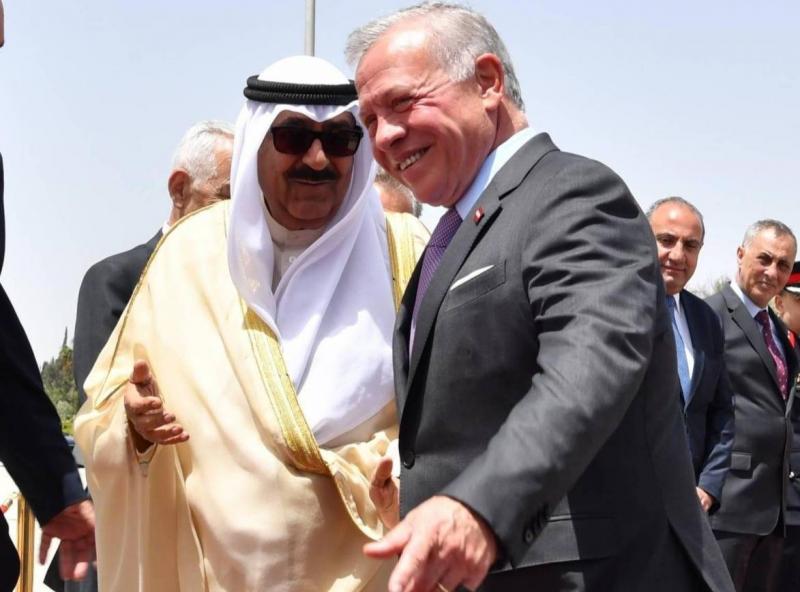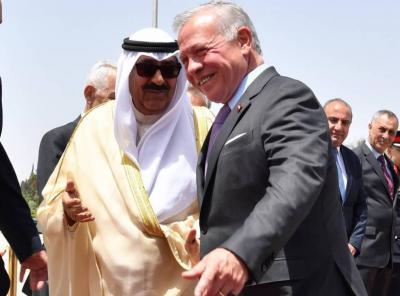A joint Kuwaiti-Jordanian statement was issued today, Wednesday, at the conclusion of a state visit by the Emir of Kuwait, Sheikh Meshaal Al-Ahmad Al-Jaber Al-Sabah, to the Hashemite Kingdom of Jordan. The two countries expressed their "pride in the level of their longstanding historical relations and their commitment to building on these relations to enhance mechanisms of cooperation across various fields to achieve the desired integration."
According to the statement published by the Kuwait News Agency (KUNA), the Emir of Kuwait held bilateral talks with Jordan's King Abdullah II, followed by an extensive session that included members of both delegations. They reviewed aspects of bilateral cooperation between the two countries across various domains and discussed ways to enhance it to meet the aspirations of both brotherly peoples.
The two sides examined ways to strengthen joint Arab action aimed at addressing emerging and new challenges and serving Arab issues. The meeting also addressed the brotherly relations between the two countries and their peoples.
Both parties reaffirmed their support for security and stability in the region and the importance of prioritizing dialogue and diplomatic solutions to resolve disputes and conflicts. They emphasized the necessity of opening channels of communication to build bridges of partnership and cooperation, enhance values of solidarity, tolerance, and peaceful coexistence, and maintain sustainable growth, stability, and peace in the region.
They stressed the importance of respecting the sovereignty of nations over their territory and refraining from interfering in internal affairs, highlighting the need to reduce tensions in the Middle East, avoid military escalation, and find fair, comprehensive, and sustainable peaceful solutions to conflicts in the region.
The two sides discussed the developments in the region, emphasizing the urgent need for the international community, especially the United Nations Security Council, to take action to impose an immediate ceasefire in Gaza, protect civilians, ensure the delivery of humanitarian aid by all possible means, and prevent further escalation. They also expressed their rejection of anything that would lead to the expansion of war or ground assaults on Rafah or the displacement of Palestinians from their lands.
They reiterated the centrality of the Palestinian issue, stating that achieving a just resolution that meets all legitimate rights of the Palestinian people based on the two-state solution, embodying an independent Palestinian state with sovereignty along the borders of June 4, 1967, with East Jerusalem as its capital, and in accordance with relevant international resolutions and the Arab Peace Initiative, is the only path to achieving just, comprehensive, and lasting peace.
They highlighted the need to preserve the existing historical and legal status of Islamic and Christian holy sites in Jerusalem. In this context, the Emir of Kuwait affirmed the importance of the historic Hashemite guardianship over the Islamic and Christian holy sites in Jerusalem in protecting their identity and the role of the Jerusalem Awqaf and Al-Aqsa Mosque Affairs Department, affiliated with the Jordanian Ministry of Awqaf and Islamic Affairs, as the body authorized to manage the affairs of Al-Aqsa Mosque/Al-Haram Al-Qudsi Al-Sharif, which serves as a place of exclusive worship for Muslims over its entire area of 144 dunams.




